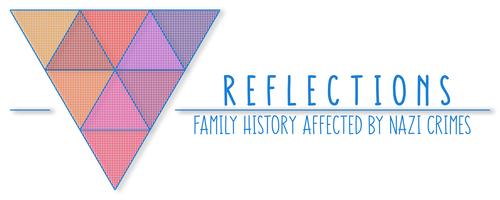No Future of Remembrance without dialogue?
A dialogue between relatives of former concentration camp prisoners and relatives of Nazi perpetrators brings people with very different family histories together. Through the dialogue they can gain a better understanding of each other, form relationships with each other and, ideally, even become active together beyond the dialogue setting. Nonetheless, there is also potential for conflict and hurt.
For the participants of the Forum „Future of Remembrance“ the positive effects seemed to have outweighed the negative ones as a majority of them asked to participate in the workshop „Dialogue between members of former concentration camp prisoners and relatives of Nazi perpetrators“.
Here are four reasons why the popularity of the workshop is a good sign for the future of remembrance:
1. They already live next door to each other
Relatives of former concentration camp prisoners and relatives of Nazi perpetrators often live in the same communities – with the possible exception of those who have their home in Israel. They meet on the street, on the bus or in the theater. Only they often don’t know about each other’s family history.
Accordingly, at the beginning of the dialogue there is a public avowal of their own family history in front of strangers. The participants give away the protection provided by anonymity, but they also thereby give the effects of the Nazi crimes on both „sides“ a face. Together they take a stand against historization and depersonalization.
2. Interest and respect
A dialogue meeting is different in important ways from a random conversation about family history. Here no participant must fear to encounter a lack of interest in the history of National Socialism. In addition, most dialogue groups give themselves rules or guidelines to ensure a constructive dialogue. Here you can find the rules applied to the „Sunday meetings“ of One by One Germany.
3. Inherited guilt, inherited suffering?
The dialogue enables the participants to understand that both the use of force as well as the experience of violence by their relatives has had impact on the parti-cipants. Nonetheless, this does not negate the differences in experiences of victims’ and perpetrators’ families. Rather, the feelings and emotions that participants share with the others are important. Their participation in the dialogue becomes symbolic. Regardless of what they “inherited” from their relatives, they choose not to see each other as stereotypes turned into flesh, but appreciate and value each other as individuals. They look at each other neither as victims nor as perpetrators qua family relations, but as an independently acting people.
4. Orientation toward the Future
During the multigenerational meeting in May 2014 at the Neuengamme Concentration Camp Memorial that brought together 40 people from four generations, including survivors of the concentration camps, their relatives as well as young people from Germany and Memorial staff, to talk about commemorating the former prisoners in the future, a declaration was issued, emphasizing the future-oriented motivation for dialogue:
The children of perpetrators and the children of concentration camp prisoners […] can and should work together to prevent that their parents committed or had to suffer from will not be repeated.
So the dialogue brings together people who want to work together to ensure that the human beings’ rights are respected and that people treat each other respectfully. These goals may be attained, for example, by joint public appearances that show that relatives can build bridges. The school visits by One by One Germany are a good example. Relatives of the survivors and relatives of perpetrators meet with school children. The speakers give personal impressions and thereby contribute to a dehistorization. Finally, the students are encouraged to identify current forms of exclusion and hatred and to deal with the question of how they can make a stand against it.
So, would you like to participate in a dialogue meeting? We would like to draw your attention to the following projects and events:
Projects and Events
One by One Germany organizes four open „Sunday meetings“ each year at 4 p.m. till 9 p.m. in the gallery in the Fehrbelliner Straße 92, 10119 Berlin-Prenzlauer Berg.
From 4-8. December 2015 the symposium on „Ways out of the burden of silence ’20 years TAE – The Austrian Encounter descendants of victims and perpetrators of the Shoah / Holocaust in dialogue“ will take place in Vienna. ().
Soon we will inform you on this blog about the dialogue seminar planned for the first half of 2016 in Hamburg. Please sign up for our newsletter to stay up to date on events.
